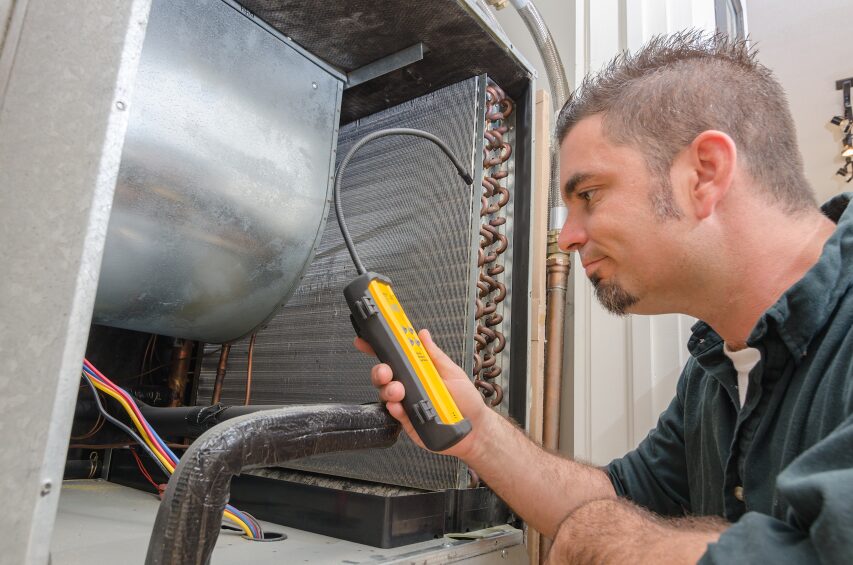
Refrigerant leaks in HVAC systems are a common issue that can cause significant problems if left unaddressed. Refrigerants are used in air conditioning and refrigeration systems to absorb and release heat, but when they leak out of the system, they can cause a range of issues that affect both the performance and safety of the system.
In this blog, we’ll take a closer look at the causes and consequences of refrigerant leaks in HVAC systems, as well as some steps you can take to prevent them.
Causes of Refrigerant Leaks
There are several reasons why refrigerant leaks can occur in HVAC systems, including:
- Corrosion: Over time, HVAC system components can become corroded, which can cause leaks to develop. This is especially common in older systems or those that are exposed to harsh environmental conditions.
- Poor installation: If an HVAC system is not installed correctly, it can lead to leaks. This can happen if the system is not sealed properly or if the refrigerant lines are not properly connected.
- Normal wear and tear: Over time, the components in an HVAC system can wear down, which can cause leaks to occur. This is especially true for systems that are not properly maintained.
- Physical damage: If an HVAC system is subject to physical damage, such as from falling objects or impacts, it can cause leaks to develop.
Consequences of Refrigerant Leaks
Refrigerant leaks in HVAC systems can cause several problems, including:
- Reduced efficiency: When there is a refrigerant leak, the HVAC system has to work harder to maintain the desired temperature. This can cause the system to use more energy and result in higher utility bills.
- Increased wear and tear: When an HVAC system is working harder to maintain the desired temperature, it can cause increased wear and tear on the system components. This can lead to more frequent breakdowns and repairs.
- Health and safety risks: Refrigerants are toxic and can cause health problems if they are inhaled. They can also cause fires or explosions if they come into contact with an ignition source.
- Environmental damage: Refrigerants can damage the environment if they are released into the air. They can contribute to the depletion of the ozone layer and contribute to climate change.
Fixing a refrigerant leak is tricky as well, and can be costly. To repair a leak, a leak search must take place which takes time to complete and you will also have to pay for the cost to refill your system with refrigerant. What’s more, sealing a leak isn’t always guaranteed to work and will not be a permanent fix. Often times a coil replacement is the only permanent solution.
Preventing Refrigerant Leaks
The best way to prevent refrigerant leaks in HVAC systems is to have the system regularly maintained by a qualified technician. This includes regular inspections, cleaning, and tune-ups. However, this isn’t always enough to prevent a leak from happening.
Additionally, it’s important to make sure that the system is installed correctly and that all components are properly sealed. This can help prevent leaks from developing in the first place.
If you suspect that your HVAC system has a refrigerant leak, it’s important to have it inspected and repaired as soon as possible. This can help prevent further damage to the system and ensure that it is operating safely and efficiently.
In conclusion, refrigerant leaks in HVAC systems can cause a range of problems, from reduced efficiency to health and safety risks. By understanding the causes and consequences of these leaks, and taking steps to prevent them, you can help ensure that your HVAC system operates smoothly and safely for years to come. If you are in need of a leak repair, give us a call at 919-746-4410 or request an appointment here.

